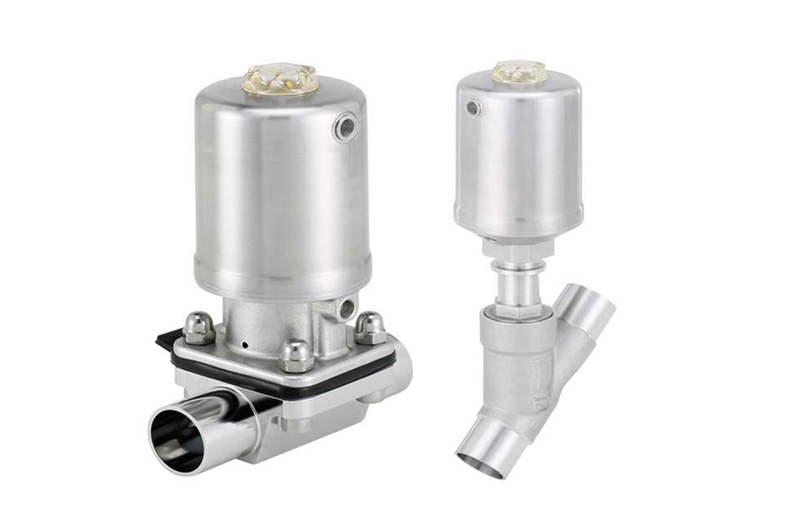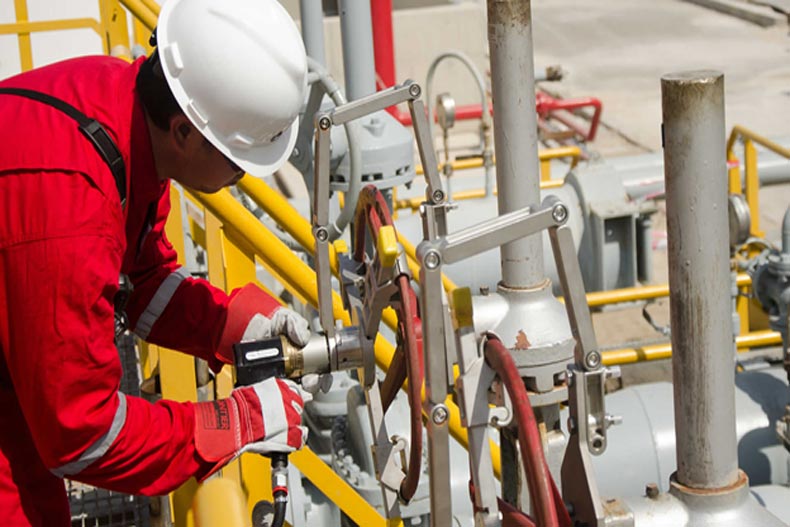The industrial landscape’s evolution necessitates efficient and robust machinery to boost productivity and ensure safety. High-quality equipment is at the heart of this requirement, mainly as industries rely more on complex systems for their operations. Valves and actuators are exemplary components widely utilized across various sectors. Valves are instrumental in regulating the flow of materials — liquids, gases, or slurries — to maintain desired process conditions. Actuators, in contrast, provide the necessary kinetic energy to operate valves. This combination is particularly vital in sectors like the petrochemical industry, where precision and reliability are paramount. The actuator’s role in automating valve operations is crucial for maintaining continuous, safe, and efficient industrial processes.

Source: Processindustryinformer
The Crucial Role of Customized Components in Hydraulic Systems
Hydraulic systems epitomize the importance of high-quality components in industrial machinery. These systems, which use fluids to generate power, are fundamental in various applications, demanding well-engineered and robust personalized components like valves, actuators, and hoses to maintain efficacy and safety. Additionally, made-to-order hydraulic hoses exemplify the industry’s need for customized solutions, ensuring that each part fits seamlessly into the system, minimizing the risk of leaks or failures. These hoses, along with reliable valves and actuators, are critical in maintaining the integrity and performance of hydraulic systems, highlighting the industrial need for specific, high-quality components tailored to precise operational requirements.
Integrating advanced technologies into industrial machinery further underscores the significance of precision and adaptability in components like valves and actuators. As industries pivot towards automation and intelligent technologies, the role of these components becomes increasingly multifaceted. They must perform their primary functions with utmost reliability and integrate seamlessly with digital control systems. This integration enhances operational efficiency, reduces human error, and allows for real-time monitoring and adjustments, which are crucial in dynamic industrial environments. This digital evolution in industrial machinery necessitates components that are not only mechanically sound but also technologically advanced, further driving the demand for high-quality, specialized equipment tailored to the unique needs of each industry.
In some industries like the petrochemical industry, valves and actuators are the lifelines of operations. It is vital to know the difference between valves and actuators.
Valves
As already mentioned, valves regulate the flow of different materials. Some valves are appropriate for only liquids while some can manage the flow of both liquids and gases. The mechanism of different valve types differs from one another. Some valves can channel controlled flow while others can only start and stop the flow.
Several types of valves are used in industries, and some of the prominent ones are given below:
Globe Valve
The globe valve has a spiral channel through which the material flows. Due to the high friction in the internal parts, globe valves have limited capabilities for regulating flow. However, they are considered the ideal choice for throttle flow. Globe valves are also excellent for controlling the flow of highly dense and viscous liquids. Globe valves are widely used in the food processing and pharmaceutical industry.
Gate Valve
Gate valves have a metallic gateway that opens and closes to manage the flow of the material. Due to their simple clearance obstruction mechanism, gate valves have limited regulating abilities. They can either start the flow of the liquid or stop it. That is why they are also known as on/off valves. Gate valves are mostly used in hydropower plants and the wastewater management industry. There are different types of gate valves based on their working mechanism.
Ball Valves
A ball valve has a metallic ball in the center that is used to control the flow of the material. The ball moves in the horizontal direction to start and stop the flow. Ball valves can facilitate two-directional flow. The quantity of flow offered by ball valves is greater than other types like globe valves. The latest technology introduced in ball valves makes them able to control the flow more efficiently.
Ball valves are used for both liquids and gases. In addition to manual control, ball valves can also be controlled automatically. Ball valves are commonly used in chemical, oil, and gas industries.
Check Valve
A check valve has a specialty that hinders the backward flow of material. Check valves have a fast-moving internal mechanism that allows efficient control of the flow. However, check valves cannot control high pressure and throttle flow. That is why they are not the ideal choice for fast-flowing liquids. They have a spring that allows automatic functioning. Some check valves use pistons while others use ball discs to control the flow.
Check valves are mostly used in the gas industry and other industries that are dependent on it. There are different sizes and shapes of check valves available.
Butterfly Valves
The thing that distinguishes butterfly valves from other types is their rotary motion. They rotate horizontally to obstruct and allow the flow. There is a paddle that is pivoted in the center and can be operated manually as well as electronically. Butterfly valves have a fluent mechanism that allows them lower pressure isolation and better regulating. They can regulate gas, liquids, and semi-solids. Butterfly valves are extensively used in the food and chemical industries.
Actuators
Actuators are the mechanical devices used to control the working of a device. In industrial applications, actuators are widely used to run different types of valves. The actuators use different energy sources to get the power for running valves. There are different types of actuators used in industries, and a few of them are mentioned below:
Manual Actuator
A manual actuator is a type of actuator that is operated manually by applying force through the hands. Various manual actuators have different working mechanisms. Some are initiated by rotating screws while others are operated by pressing knobs. Manual actuators are frequently used across different industries, including petrochemical and pharmaceutical industries.

Source: Sofisglobal
Hydraulic Actuator
The hydraulic actuators consist of a cylinder with a piston inside it that starts moving when pressure is exerted on it. Hydraulic actuators commonly use liquid pressure to generate mechanical force that starts the valves. There are different types of hydraulic actuators, including linear and rotary actuators that perform various functions.
Due to the simple mechanism, hydraulic actuators are considered excellent for running different mechanical operations. They are commonly used with electric motors and hydropower plants.
Pneumatic Actuator
A pneumatic actuator uses the pressure of compressed gas and vacuum to generate the mechanical force. The reaction time taken by pneumatic actuators is lesser compared to other types of actuators. Pneumatic actuators are widely used in the gas industry and thermal and steam power plants.
Magnetic Actuator
Magnetic energy is utilized to generate mechanical energy in magnetic actuators. There is a metallic bar sandwiched between positive and negative ends that generates a potential difference. Magnetic actuators are most commonly used in the electrical and electronic industry.
Conclusion
Valves and actuators are an essential part of industrial mechanisms. They are useful in a wide variety of industries to facilitate functioning from the petrochemical industry to wastewater management. Learning the basics of both will greatly help when handling them whatever the process is.











